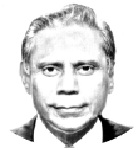Sultan M Hali
Whenever Chinese government manages to provide a counter narrative and simmer down the propaganda against its alleged maltreatment of the Uighurs in China’s province of Xinjiang, fresh salvos are launched assailing Beijing. In the latest instance, many senior US officials have criticized the Chinese government with regards to the issue of forced labor in Xinjiang. The US Administration also rolled out sanction measures on Xinjiang companies. Chinese Foreign Office Spokesperson Wang Wenbin, when asked to comment on the issue, responded that some people in the US deliberately choose to ignore the enormous efforts Xinjiang has taken to protect human rights but wantonly hype up the so-called “forced labor” issue in Xinjiang and slander Xinjiang’s efforts to take good care of the workforce. Their groundless and untenable accusations exemplify disinformation and fake news.
The State Council Information Office of the People’s Republic of China recently released a white paper titled “Employment and Labor Rights in Xinjiang”. The Chinese Foreign Office Spokesperson suggested that if those people in the US truly care about the employment situation in Xinjiang, they should read the white paper thoroughly.The white paper commences with the observation that “Work creates the means of existence and is an essential human activity”. It creates a better life and enables all-round human development and the progress of civilization. The Constitution of the People’s Republic of China provides that all citizens have the right and obligation to work. To protect the right to work is to safeguard human dignity and human rights. Workers’ job preferences have always served as an important reference for the local government of Xinjiang in expanding employment channels and organizing vocational training sessions. In accordance with law, Xinjiang guarantees workers’ equal right to employment, remuneration, rest and leisure, occupational safety, social insurance and freedom of religious belief.
In accordance with the principle of equal protection of civil rights, Xinjiang ensures that there is no discrimination against workers on the basis of ethnicity, region, gender, or religious belief, and that no individuals’ rights are restricted because of their urban or rural status, profession or position. The minimum salary in Xinjiang was raised by 19.74 percent from RMB1,520 per month in 2013 to RMB1,820 per month in 2018, which was at a high level in the country. Workers are guaranteed the right to time off on weekends and statutory holidays including the Spring Festival, Ramadan, Eid ul Fitr and Eid ul Azha, and they can choose which languages to use for communication.
Xinjiang has been firm in preventing and punishing any incidents of forced labor. The following actions are strictly forbidden and will lead to administrative punishments: forcing a person to work by means of violence, threat, or illegal limitation of personal freedom; or affronting, physically punishing, beating, illegally searching or detaining an employee. Should it be established that a crime has taken place, the perpetrator will be subjected to a criminal investigation. Xinjiang strictly observes 26 international labor conventions, including Discrimination (Employment and Occupation) Convention and the other three of the ILO’s fundamental conventions and a host of UN conventions, including the International Covenant on Economic, Social and Cultural Rights, to effectively safeguard workers’ rights and oppose forced labor. With the implementation of a series of employment policies and measures, Xinjiang has seen a notable improvement in living standards for all ethnic groups. The annual per capita income of workers from Xinjiang who are working in other provinces is about RMB40,000, and the local people who left their home to work elsewhere in Xinjiang have an annual per capita income of RMB30,000, much higher than earnings from farming. From 2013 to the end of 2019, the poverty incidence dropped from 19.4 percent to 1.24 percent. From 2014 to the end of 2019, a total of 2.92 million people shook off poverty.
Respecting and protecting human rights are principles enshrined in the Constitution of China. The CPC and the Chinese government have always prioritized the protection of the citizens’ rights to work and employment. China has taken a resolute stance against forced labor and eradicated it in any form. Xinjiang’s policies and practices concerning employment and job security comply with China’s Constitution and relevant laws and conform to international labor and human rights standards. For those who accuse Xinjiang of forced labor, they are either ignorant or have an ulterior motive to serve. China urges these people to respect basic facts, stop smearing Xinjiang’s human rights record, stop interfering in China’s internal affairs, and stop messing up with Xinjiang’s stability and prosperity.
Despite the scourge of COVID-19, which has affected the whole world, Chinese performance in trade and commerce has not fared poorly. Exports of epidemic prevention supplies grew rapidly with sales of medicines and pharmaceutical products, and medical equipment expanding by 23.6 percent and 46.4 percent, respectively. Despite this salutary performance, some countries chose to deride China with snide comments, most of it unwarranted. The impression that products emanating from China are “made by slave labour” persists. The official account of US diplomatic missions in China retweeted in Chinese the post that “Many products made in China are made by slave labor. Every business should scrub its supply chain to ensure it’s not profiting from the Chinese Communist Party’s human rights abuse of Uyghurs in Xinjiang”. The words came with a picture showing a fabric label that reads “made by slave labor in China”. It is time such unwarranted attacks on China cease.
—The writer is retired PAF Group Captain and a TV talk show host.










